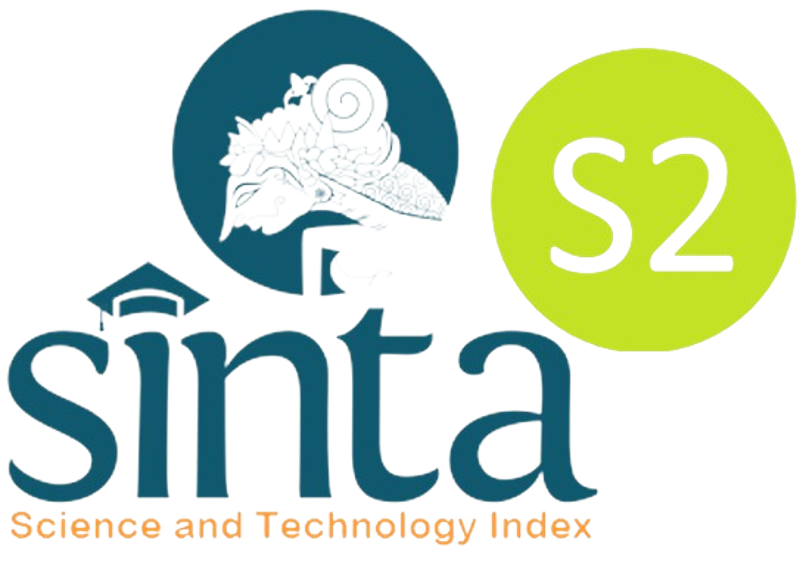Exploratory Analysis Study and Correlations between the Principal’s Leadership Style and the School’s Digitalization System in Bandar Lampung City
Abstract
Abstract: Exploratory Analysis Study and Correlations between the Principal’s Leadership Style and the School’s Digitalization System in Bandar Lampung City. Objectives: This study aimed to describe the influence of the principal’s leadership style on the school digitalization system according to school’s accreditation and status. Methods: This research method used exploratory survey method with a questionnaire completed by 30 elementary school teachers in Bandar Lampung City. The data were analysed using descriptive statistics and non-parametric correlations test. Findings: The situational leadership style that elementary school principals generally applied in Bandar Lampung is the selling style. Nevertheless, the principals still showed 3 other leadership styles, namely: telling, participating and delegating; with proportions that are not much different. Unlike the digitalisation system, schools generally are still not optimal in implementing digital systems in schools. Conclusions: The principal’s leadership style did not have a significant relationship to the school digitalization system.
Keywords: principal’s leadership style, school’s digitalization, correlation.
Abstrak: Studi Analisis Eksplorasi dan Korelasi antara Gaya Kepemimpinan Kepala Sekolah dan Sistem Digitalisasi Sekolah di Kota Bandar Lampung. Tujuan: Penelitian ini bertujuan untuk menggambarkan pengaruh gaya kepemimpinan kepala sekolah terhadap sistem digitalisasi sekolah sesuai dengan akreditasi dan status sekolah. Metode: Metode penelitian ini menggunakan metode survei eksploratif dengan kuesioner yang diisi oleh 30 guru sekolah dasar di Kota Bandar Lampung. Data dianalisis menggunakan statistik deskriptif dan uji korelasi non-parametrik. Temuan: Gaya kepemimpinan situasional yang diterapkan oleh kepala sekolah dasar di Bandar Lampung adalah gaya penjualan. Meskipun demikian, kepala sekolah masih menunjukkan 3 gaya kepemimpinan lainnya, yaitu: mengatakan, berpartisipasi, dan mendelegasikan dengan proporsi yang tidak jauh berbeda. Berbeda dengan sistem digitalisasi, sekolah umumnya masih belum optimal dalam menerapkan sistem digital di sekolah. Kesimpulan: Gaya kepemimpinan kepala sekolah tidak memiliki hubungan yang signifikan dengan sistem digitalisasi sekolah.
Kata kunci: gaya kepemimpinan kepala sekolah, digitalisasi sekolah, korelasi.
Full Text:
PDFReferences
Bond, T.G., & Fox, C.M. (2007). Applying The Rasch Model: Fundamental Measurement in the Human Sciences, 2nd Edition. Mahwah, New Jersey, London: Lawrence Erlbaum Associates, Publisers.
Cohen, J. (1988). Statistical power analysis for the behavioral sciences. New York: Academic.
Dunegan, K. J., Tierney, P., & Duchon, D. (1992). Perception of an innovative climate: Examining the role of divisional affiliation, work group interaction, and leader/subordinate exchange. IEEE Transactions on Engineering Management, 39, 227–236.
Farmer, L. (2012). Situational Leadership: A model for leading telecommuters. Journal of Nursing Management.
Gill, R. (2011). Theory and Practice of Leadership. London: Sage Publications.
Hall, G. E., & Hord, S. M. (2011). Implementing change: Patterns, principles and potholes (3rd ed.). Boston, MA: Pearson.
Hariri, H., Ridwan & Karwan, D.H. (2017). Evolusi Pendekatan Teori Kepemimpinan Menuju Kepemimpinan Efektif. Yogyakarta: Expert.
Hasibuan, Malayu, SP. (2013). Manajemen Sumber Daya Manusia. Jakarta: PT. Bumi Aksara.
Hersey, P. and Blanchard, K. H. (1977). Management of Organizational Behavior 3rd Edition – Utilizing Human Resources. New Jersey: Prentice Hall.
Kindle. (2009). Leadership: Theory and Practice. Kindle Edition.
Lee, J., Lapira, E., Bagheri, B., & Kao, H., (2013). Recent Advances and Trends in Predictive Manufacturing Systems in Big Data Environment. Manuf. Lett. 1 (1), 38–41.
Liffler, M., & Tschiesner, A. (2013). The Internet of Things and the Futureof Manufacturing. McKinsey & Company.
Linacre, J. M. (2010). Predicting responses from Rasch measures. Journal of Applied Measurement, 11(1), 1-10.
Northhouse, P. (2013). Leadership defined. Leadership: theory and practice, 6, 2-6.
Rivai, Veithzal. (2014). Manajemen Sumber Daya Manusia untuk Perusahaan Edisi ke 6. Depok: PT. Raja Grafindo Persada.
Slamet, Margono. (1999). Filosofi Mutu dan Penerapan Prinsip-Prinsip Manajemen Mutu Terpadu. Bogor: IPB.
Stoner, A.F. James. (1996). Manajemen Edisi Indonesia. Jakarta: PT. Prenhallindo.
Sumintono, B. & Widhiarso, W. (2013). Aplikasi Model Rasch untuk Penelitian Ilmu-Ilmu Sosial. Jakarta: TrimKom
Sung, T.K. (2017). Industri 4.0: a Korea perspective. Technological Forecasting and Social Change Journal, 1-6.
Sutikno, Sobry M. (2014). Pemimpin dan Gaya Kepemimpinan, Edisi Pertama. Lombok: Holistica.
Tannenbaum, R. & Schmidt, W.H. (1958). How to Choose a Leadership Pattern. Harvard Business Review, 36, 95- 101.
Thoha, Miftah. (2013). Perilaku Organisasi Konsep Dasar dan Implikasinya. Jakarta: PT. Raja Grafindo Persada.
Tjandrawina, R.R. (2016). Industri 4.0: Revolusi industri abad ini dan pengaruhnya pada bidang kesehatan dan bioteknologi. Jurnal Medicinus, Vol 29, Nomor 1, Edisi April.
Vecchio, R. P., & Boatwright, K. J. (2002). Preferences for idealized style of supervision. Leadership Quarterly, 13, 327–342.
Weingast, B.R. (2009). Second generation fiscal federalism: the implications of fiscal incen- tives. J. Urban Econ. 65 (3), 279–293.
West, M. A. (1990). The social psychology of innovation in groups. In M. A. West & J. L. Farr (Eds.), Innovation and creativity at work: Psychological and organizational strategies (pp. 309–333). Chichester, UK: Wiley.
Widoyoko, E. P. (2011). Teknik Penyusunan Instrumen Penelitian. Yogyakarta: Pustaka Pelajar.
Yukl, Gary. (2010). Kepemimpinan dalam Organisasi Edisi Kelima. Jakarta: PT. Indeks.
Refbacks
- There are currently no refbacks.
Copyright (c) 2020 Jurnal Pendidikan Progresif

This work is licensed under a Creative Commons Attribution-ShareAlike 4.0 International License.
View My Stats

The copyright is reserved to The Jurnal Pendidikan Progresif that is licensed under a Creative Commons Attribution-ShareAlike 4.0 International License.





